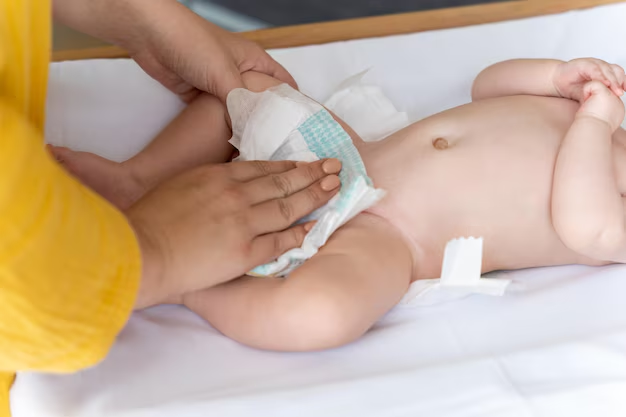Unlocking Resources: Does WIC Assist with Diaper Costs?
When expecting a new addition to the family, ensuring you have all the essentials to care for your baby can feel overwhelming. From preparing the nursery to stocking up on tiny clothes, one question often emerges as a top concern for new parents: how will they manage the recurring costs of diapers? Many parents participating in the Women, Infants, and Children (WIC) program, which aims to aid low-income families with nutritional support, wonder if this assistance extends to diaper expenses. Let's explore this question in depth and navigate the available resources.
🤔 Understanding WIC: Does It Cover Diapers?
The Women, Infants, and Children (WIC) program is federally funded and designed to provide nutritional education, breastfeeding support, and access to healthy foods for pregnant and postpartum women, infants, and young children. However, it's important to note that WIC does not cover the cost of diapers. The program focuses primarily on nutritional support and specific health-related services.
Why WIC Doesn't Include Diapers
The exclusion of diapers from WIC's scope largely stems from the program's original intent and funding constraints. WIC is tailored to address nutritional needs and related services that significantly impact maternal and child health. Thus, its budget is allocated for food, nutrition education, and breastfeeding support rather than extending to general baby care items like diapers.
🍼 Navigating Diaper Support: Alternative Resources
Even though WIC doesn't cover diapers, several other resources can help ensure your baby stays clean and comfortable. Here's how you can find support:
1. Diaper Banks and Pantries
Diaper banks are charitable organizations dedicated to providing diapers to families in need. They operate similarly to food banks and can be a crucial lifeline for parents struggling to afford diapers. Visiting a local diaper bank or pantry might provide the relief you need.
- How to Find a Diaper Bank: Check with community service organizations or online directories focusing on local charities.
- Eligibility: Most diaper banks do not require extensive documentation, making them accessible for immediate needs.
2. Community Programs
Local community programs and non-profit organizations frequently run drives to collect or distribute diapers. Programs hosted by churches, civic groups, or community centers could be vital in assisting families in need of diaper support.
3. Government Assistance Programs
While WIC does not cover diapers, other governmental assistance programs, like Temporary Assistance for Needy Families (TANF), may offer some financial relief that can be used toward purchasing diapers.
- Applying for TANF: Contact your local human services office to learn about eligibility and application processes.
4. Retail Rewards and Savings Programs
Several retail chains and online stores offer loyalty programs, coupons, and discounts on diaper purchases. Joining reward programs or signing up for baby registries could provide regular discounts or free diaper samples.
🌿 Emphasizing Sustainability: Cloth Diapers
For families considering long-term solutions for diapering needs, cloth diapers may be a sustainable and cost-effective option. While requiring an initial investment, cloth diapers can save money over time compared to disposable ones.
Benefits of Cloth Diapers:
- Cost-Effective: Once the upfront costs are managed, they can be reused, diminishing ongoing diaper expenses.
- Eco-Friendly: Cloth diapers reduce waste and their environmental impact when compared to disposable diapers.
- Ease of Use: Modern cloth diapers are designed for convenience, with features like snap closures and removable liners.
Cons of Cloth Diapers:
- Initial Cost: High upfront costs can be a barrier for some families.
- Laundry Needs: Regular washes are essential, which could increase utility bills or be inconvenient without laundry facilities.
For many families, balancing the benefits with the drawbacks helps determine if cloth diapers fit best into their lifestyle and budget.
📊 Quick Tips for Managing Diaper Costs
Here's a quick guide to help you navigate diaper expenses efficiently:
- 🧺 Explore Cloth Options: Consider cloth diapers as a long-term cost-efficient choice.
- 🏦 Connect Locally: Utilize local resources such as diaper banks and donation programs.
- 🛍️ Smart Shopping: Look for sales, discounts, and loyalty rewards for regular savings on disposable diapers.
- 📞 Seek Assistance: Investigate programs like TANF that might provide additional financial relief.
Supporting Families Beyond Diapers
While diapers are essential, the challenges faced by growing families extend beyond this. Programs like WIC focus on nutrition because healthy women and children lay a foundation for a thriving future. Even though diaper costs can be burdensome, understanding and accessing available resources ensures you're equipped with the support necessary for your family's well-being.
Encouragement and Empowerment
Navigating financial constraints is challenging but remember, reaching out for support shows strength and persistence. By exploring various local and national resources, you can secure the essentials you and your family need.
Ultimately, while WIC does not directly support the cost of diapers, a tapestry of community resources, government aid, and innovative alternatives like cloth diapers are available. By speaking out and seeking assistance, parents can find proactive ways to manage their child's needs. It's about pooling opportunities, embracing community support, and utilizing all available resources to ensure your child grows up healthy, happy, and dry.

